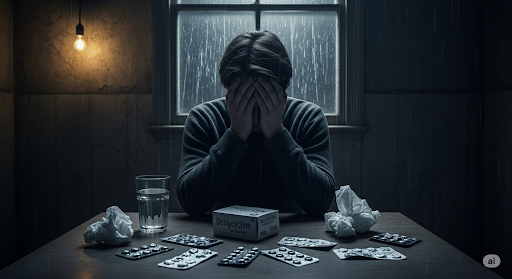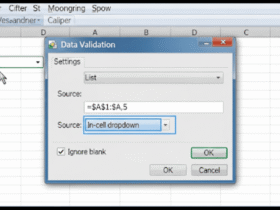If you’ve ever searched the phrase “doxycycline ruined my life,” you’re not alone. While doxycycline is a commonly prescribed antibiotic used to treat everything from acne and UTIs to Lyme disease and respiratory infections, not everyone has a positive experience with it. Some users report unexpected, long-lasting, or even life-altering side effects after taking the drug leading to confusion, frustration, and fear.
This article explores potential side effects of doxycycline, the science behind these reactions, real concerns expressed by users, and what you can do if you feel like doxycycline negatively impacted your life.
What Is Doxycycline?
Doxycycline is a broad-spectrum antibiotic in the tetracycline class, often prescribed for:
- Acne
- Lyme disease
- Malaria prevention
- Chlamydia and other STIs
- Skin and respiratory infections
- Rosacea
It’s generally considered safe and effective—but like all medications, it carries risks.
Why Are People Saying “Doxycycline Ruined My Life”?
While most users tolerate doxycycline well, a small subset report serious side effects that disrupt their lives. These stories often involve:
- Severe gastrointestinal distress
- Mental health changes (like anxiety, depression, or depersonalization)
- Long-term digestive issues
- Photosensitivity (extreme sun reactions)
- Hormonal or neurological changes
Some people experience issues long after stopping the drug, making them feel like their health and quality of life have been permanently altered.
Potential Long-Term or Severe Side Effects of Doxycycline
While rare, the following side effects are documented and can be serious:
1. Gastrointestinal Issues
- Nausea, vomiting, acid reflux, and severe stomach pain
- Disruption of gut microbiota, possibly leading to IBS-like symptoms
2. Mental Health Symptoms
- Anxiety, panic attacks, depression, brain fog
- Some users report derealization or mood instability
3. Photosensitivity
- Increased risk of sunburn, even in moderate sunlight
- Long-term skin damage in some cases
4. Esophageal Damage
- Taking doxycycline without enough water can lead to burns or ulcers in the throat
5. Hormonal/Neurological Effects
- Rarely, users report headaches, visual disturbances, or even tinnitus (ringing in the ears)
Is It Possible Doxycycline Triggered a Chronic Condition?
In some anecdotal cases, patients believe doxycycline either triggered or worsened:
- Autoimmune responses
- Post-infectious IBS
- Gut dysbiosis
- Long-term anxiety or fatigue syndromes
Scientific evidence linking doxycycline directly to these conditions is limited, but researchers do acknowledge the complex role antibiotics play in gut health, immunity, and even brain chemistry.
What Should I Do If I Think Doxycycline Harmed Me?
If you feel like “doxycycline ruined my life,” here’s what you can do:
1. Seek Medical Help
- Consult a doctor or specialist (such as a gastroenterologist or neurologist)
- Rule out underlying conditions or other medication interactions
2. Gut Healing
- Many users report improvements by focusing on gut health through:
- Probiotics
- Fermented foods
- A low-inflammatory diet (e.g., low FODMAP)
3. Mental Health Support
- If you’re experiencing anxiety or depression, seek therapy or psychiatric support
- Consider integrative treatments like mindfulness or neurofeedback
4. Document Symptoms
- Keep a journal of your symptoms, diet, and triggers
- This can help identify patterns or aid doctors in treatment
5. Connect with Communities
- Online forums like Reddit, Patient.info, and Facebook groups exist where others share similar stories
- You are not alone—and recovery is possible
FAQs About Doxycycline Side Effects
Q1: Can doxycycline really cause long-term damage?
A: While most people recover fully, some individuals report prolonged side effects. These cases are rare but may be linked to gut imbalance, autoimmune reactions, or personal sensitivity.
Q2: How long do side effects last after stopping doxycycline?
A: For most people, side effects resolve within days to weeks. However, some report lingering symptoms for months, particularly digestive or neurological ones. This may require treatment beyond antibiotics.
Q3: Does doxycycline affect mental health?
A: Yes, in rare cases. Anxiety, brain fog, and mood swings have been reported. Some experts believe this could be due to changes in the gut-brain axis or neuroinflammation triggered by medication.
Q4: What can I do to detox or recover after doxycycline?
A: Focus on:
- Hydration
- Balanced diet
- Probiotics/prebiotics
- Reducing stress
- Professional evaluation if symptoms persist
There’s no official “detox,” but these steps can support your body’s healing.
Q5: Is it dangerous to stop doxycycline mid-course?
A: Yes—always consult your doctor before stopping any antibiotic. Quitting early can lead to antibiotic resistance or incomplete treatment of the infection.
Q6: Why don’t doctors warn about these severe side effects?
A: Many doctors rely on clinical trial data, which shows severe side effects are rare. Unfortunately, real-world experiences sometimes reveal patterns that haven’t been fully studied yet.
Final Thoughts
Feeling like “doxycycline ruined my life” is not something to dismiss it’s a serious concern that deserves validation and medical attention. While the majority tolerate this drug well, there are real cases of prolonged side effects that need better recognition and research.
If you’re struggling, don’t suffer in silence. With the right support, diagnosis, and healing plan, many people recover and regain control over their health.


















Got a Questions?
Find us on Socials or Contact us and we’ll get back to you as soon as possible.